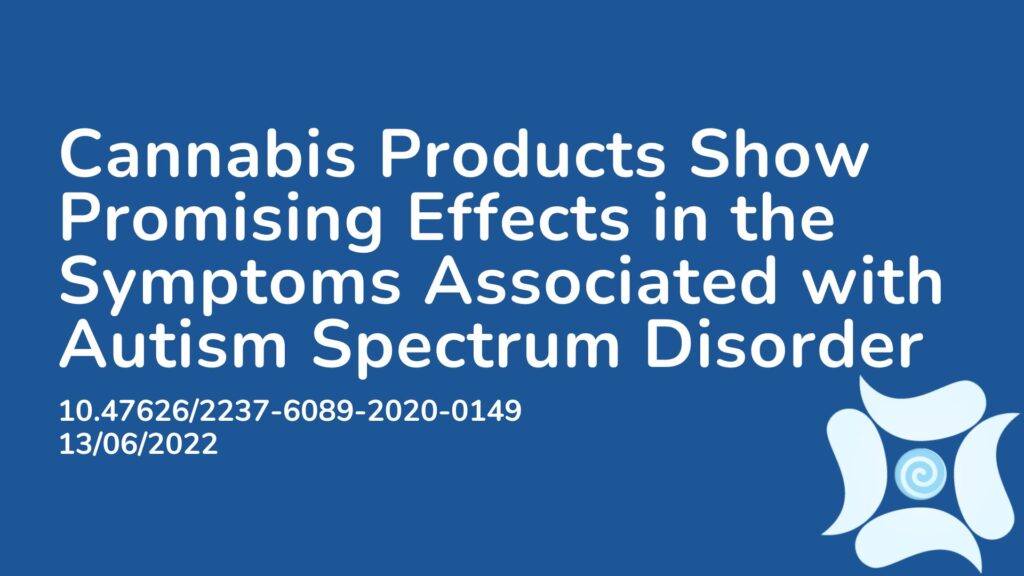Summary:
Autism spectrum disorder (ASD) is a neurodevelopmental disorder characterized by changes in social communication and interaction abilities usually with the presence of repetitive behaviours. The estimated prevalence of ASD is 1 in 44 children. Children with ASD commonly have co-morbidities such as hyperactivity, aggression, restlessness, anxiety and sleep disorders which contributes to social exclusion and distress. Current medical treatment includes anti-psychotic medication, selective serotonin reuptake inhibitors, stimulants and anxiolytics. These drugs do not treat ASD but aim to manage symptoms such as agitation and obsessive-compulsiveness, however cause undesirable side effects. Unfortunately it is very common for children with ASD to not respond well to the current medical treatment options. Cannabis and cannabinoids have also been used to treat symptoms of ASD as endocannabinoids are known to regulate the brain functions that are altered in ASD. They are able to modify aspects related to cognition, emotional responses, susceptibility to seizures and other functions commonly altered in ASD. The purpose of this paper was to perform a systematic review of the current literature available investigating the clinical effects of cannabis and cannabinoid in ASD. Some of the studies included in the systematic review showed that cannabis products can reduce the severity and frequency of symptoms including hyperactivity, self-harm, anger, sleep problems, agitation, irritability, anxiety and depression. Furthermore, an improvement was found in cognition, attention, social interaction and communication skills. This systematic review concluded that cannabis and cannabinoids have promising benefits in the treatment of ASD symptoms.
Abstract:
Introduction: Autism spectrum disorder (ASD) is a neurodevelopmental disorder characterized by persistent deficits in social communication and social interaction, associated with the presence of restricted and repetitive patterns of behavior, interests, or activities. Cannabis has been used to alleviate symptoms associated with ASD. Method: We carried out a systematic review of studies that investigated the clinical effects of cannabis and cannabinoid use on ASD, according to the Preferred Reporting Items for Systematic Reviews and Meta-Analyses (PRISMA checklist). The search was carried out in four databases: MEDLINE/PubMed, Scientific Electronic Library Online (SciELO), Scopus, and Web of Science. No limits were established for language during the selection process. Nine studies were selected and analyzed. Results: Some studies showed that cannabis products reduced the number and/or intensity of different symptoms, including hyperactivity, attacks of self-mutilation and anger, sleep problems, anxiety, restlessness, psychomotor agitation, irritability, aggressiveness perseverance, and depression. Moreover, they found an improvement in cognition, sensory sensitivity, attention, social interaction, and language. The most common adverse effects were sleep disorders, restlessness, nervousness and change in appetite. Conclusion: Cannabis and cannabinoids may have promising effects in the treatment of symptoms related to ASD, and can be used as a therapeutic alternative in the relief of those symptoms. However, randomized, blind, placebo-controlled clinical trials are necessary to clarify findings on the effects of cannabis and its cannabinoids in individuals with ASD.
Article Publication Date: 13/06/2022
DOI: 10.47626/2237-6089-2020-0149



